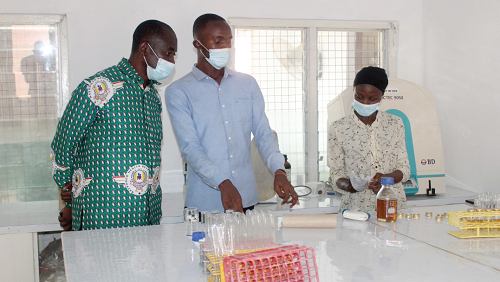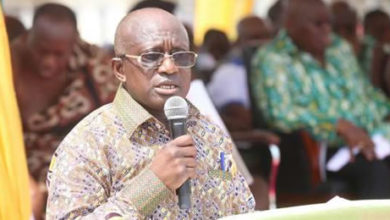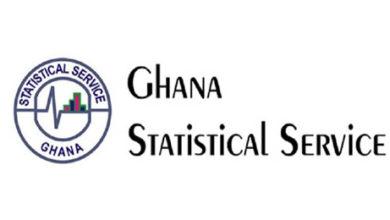Ghanaian scientists to join in research for Lassa fever vaccine 2022 – Dr Ansah

Ghana will join other international scientists in a search for a vaccine against Lassa fever virus with a phase one vaccine trial in 2022.
This is when all the relevant bodies and institutions in the country mandated to oversee vaccine trials are satisfied with the data on safety of the vaccine for human trials and all relevant stakeholders have been engaged.
This study will be conducted by the Navrongo Health Research Centre (NHRC) and Kintampo Health Research Centre (KHRC), both of the Research and Development Directorate of the Ghana Health Service, in the Kassena-Nankana Municipality in the Upper East Region and Kintampo North Municipality of the Bono East Region.
A total of 100 people would be enrolled for the exercise which would simultaneously take place at NHRC and KHRC.
The acting Director of the NHRC, Dr Patrick Odum Ansah, disclosed this to the Daily Graphic after the centre had conducted a team of health journalists from the African Media and Malaria Research Network (AMMREN) on its premises.
He said the centre was working with all the relevant bodies to get the needed approvals in order to commence the in-human trials of the vaccine.
He explained that whereas the NHRC would administer doses of the vaccine to about 50 people in its catchment areas, the Kintampo Health Research Centre (KHRC), would also do same.
He said the NHRC and KHRC were ready and had the capacity to conduct the exercise.
Why Ghana?
Touching on why Ghana had been chosen for the first in-human trials of the vaccine, he explained that the vaccine had to be tried in a country that had not recorded any case of Lassa fever.
Dr Ansah said although the country had not reported any case of Lassa fever, Burkina Faso had recorded it, and that it was only needful that the country instituted contingency measures to guard against the disease.
Background
Lassa fever is an acute viral haemorrhagic illness caused by Lassa fever virus, a member of the arenavirus family of viruses.
Humans usually become infected with Lassa virus through exposure to food or household items contaminated with urine or faeces of infected Mastomys rats.
Lassa fever is known to be endemic in Benin, Guinea, Liberia, Mali, Sierra Leone, Togo and Nigeria, but probably exists in other West African countries as well.
Person-to-person infections and laboratory transmission can also occur, particularly in health care settings in the absence of adequate infection prevention and control measures.
About 80 per cent of people who become infected with Lassa fever virus have no symptoms.
Similarly, one in five infections result in severe disease, where the virus affects several organs such as the liver, spleen and kidneys.
Why vaccines
The acting Director of the NHRC was of the view that contributing to vaccine development was key to fighting existing and emerging diseases.
For him, vaccines had proven to be one of the best ways to fighting diseases and protecting lives.
He explained that although Ghana and many other African countries were yet to record cases of Lassa fever, there could be a possible outbreak of the disease in the country in the future, considering the country’s proximity to countries that had had the disease.
Safety of vaccines
On the issue of the safety of the vaccine, Dr Ansah said the vaccine had passed the preclinical stage, where it was used on animals, stressing that the vaccine had proved to be safe.
For him, the exercise would be carefully conducted, noting that the centre had years of experience in assessing vaccines before enrolling people for trials.
Dr Ansah said after phase 1 trials, the vaccine would go through the phase 2 and phase 3 in probably a different country where Lassa fever disease had been reported, before it would be certified for mass use in the public health system.
“Even though first in humans, it’s been tried extensively in animal construct,” he noted, saying, “All the evidence points to the fact that it is safe in humans.”
He pointed out that although the exercise would have been started in August 2021, the Food and Drugs Authority (FDA) raised some queries, hence compelling the scientists to go back to the lab to run more tests and also gather more data on the vaccine, before final submission for protocol review.
Dangers of Lassa fever
Dr Ansah observed that “more than 10 per cent of people who suffer Lassa fever disease die,” cautioning that when “it breaks out as an outbreak, then we are going to lose a lot of people.”
He, however, noted that there had been minor outbreaks of the disease in Burkina Faso, Liberia and other parts of Africa.
He noted that after Ghana’s trials, the next stage of the vaccine development would be in a country where the disease had been recorded.
Small doses
He said people who would be enrolled for the exercise would be started with small doses of the vaccines, since the emphasis of the exercise was to test the safety and tolerability of the vaccine in human population to assess whether “it generates protection.”
For Dr Ansah, all vaccines development “goes through the same process” and that it was not a secretive process, since all relevant bodies in the country were on board to assess the vaccine holistically.





